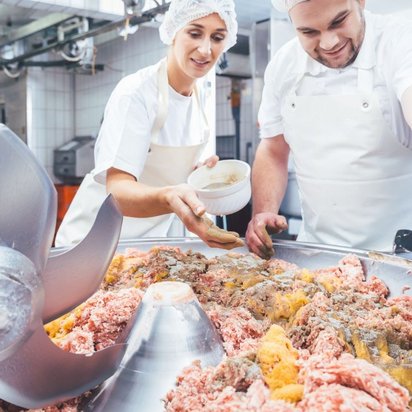Foreign body management: a thorough risk analysis is the be-all and end-all
Certification: Foreign bodies in food can have far-reaching consequences for food manufacturers.

Certification: Foreign bodies in food can have far-reaching consequences for food manufacturers.

Foreign bodies in food are not only a health hazard for consumers. They can also have far-reaching consequences for food manufacturers and permanently damage a brand. For this reason, sound foreign body management is essential.
Even though the overarching goal should always be to prevent foreign bodies from getting into the product in the first place, various causes can lead to this happening. “A comprehensive risk analysis is essential to avoid contamination,” says Oliver Eck, Senior Vice President Food International and responsible for certifications in the food industry at TÜV NORD. “Foreign body contamination is one of the complaints often voiced by consumers and can lead to serious health problems. We see time and time again that a thorough examination of potential sources of danger and an alert approach to them is more effective than buying expensive metal and X-ray detectors and other devices to lull oneself into a false sense of security.”
Where you start with the risk analysis is individual. Every company has its own characteristics and its own system. Almost all food producers have implemented a management system such as ISO 22000, FSSC 22000 or IFS in their company, which serves as a catalog of requirements and also addresses aspects of foreign body management. Industry-standard processes can be derived from this, which the auditors also use as a basis for their audit. This enables them to assess the extent to which the measures found are actually suitable for producing safe food.
Oliver Eck finds it striking that manufacturers often only focus on the obvious sources of foreign bodies such as metal parts or plastic fragments from the production machines and the immediate production environment when analyzing hazards. However, employee awareness is also extremely important when it comes to avoiding foreign bodies in the product. “It's often the small things, such as screws or other things lying around, that need to be disposed of safely,” says Eck.
The same applies to the spatial environment. For example, there are special requirements for the light sources used so that no splinters can get into the product in the event of breakage. The materials used for the interior design are also relevant: Not only in the production halls, but also in the warehouse, a critical look must be taken at tiles, wall paint and ceiling constructions. Particularly with open products or open production machines, foreign bodies can quickly get into the food.
Finally, Oliver Eck believes that every risk analysis should also include a detailed look at the workforce. “It is difficult to determine in advance where human error could play a role. It is important to regularly walk through production with an alert eye in order to filter out weak points,” says Eck. For example, improper handling of raw materials and tools, as well as unsuitable protective clothing, could lead to foreign objects falling into the production lines. “The classics are still hair and pieces of foil in the product,” says Eck. A metal or X-ray detector is powerless here - only a high level of employee awareness regarding the production of safe food can help. The food expert from TÜV NORD advises regular training to sensitize employees to the issue of contamination.
Founded over 150 years ago, we stand for security and trust worldwide. As a knowledge company, we have our sights firmly set on the digital future. Whether engineers, IT security experts or specialists for the mobility of the future: in more than 100 countries, we ensure that our customers become even more successful in the networked world.